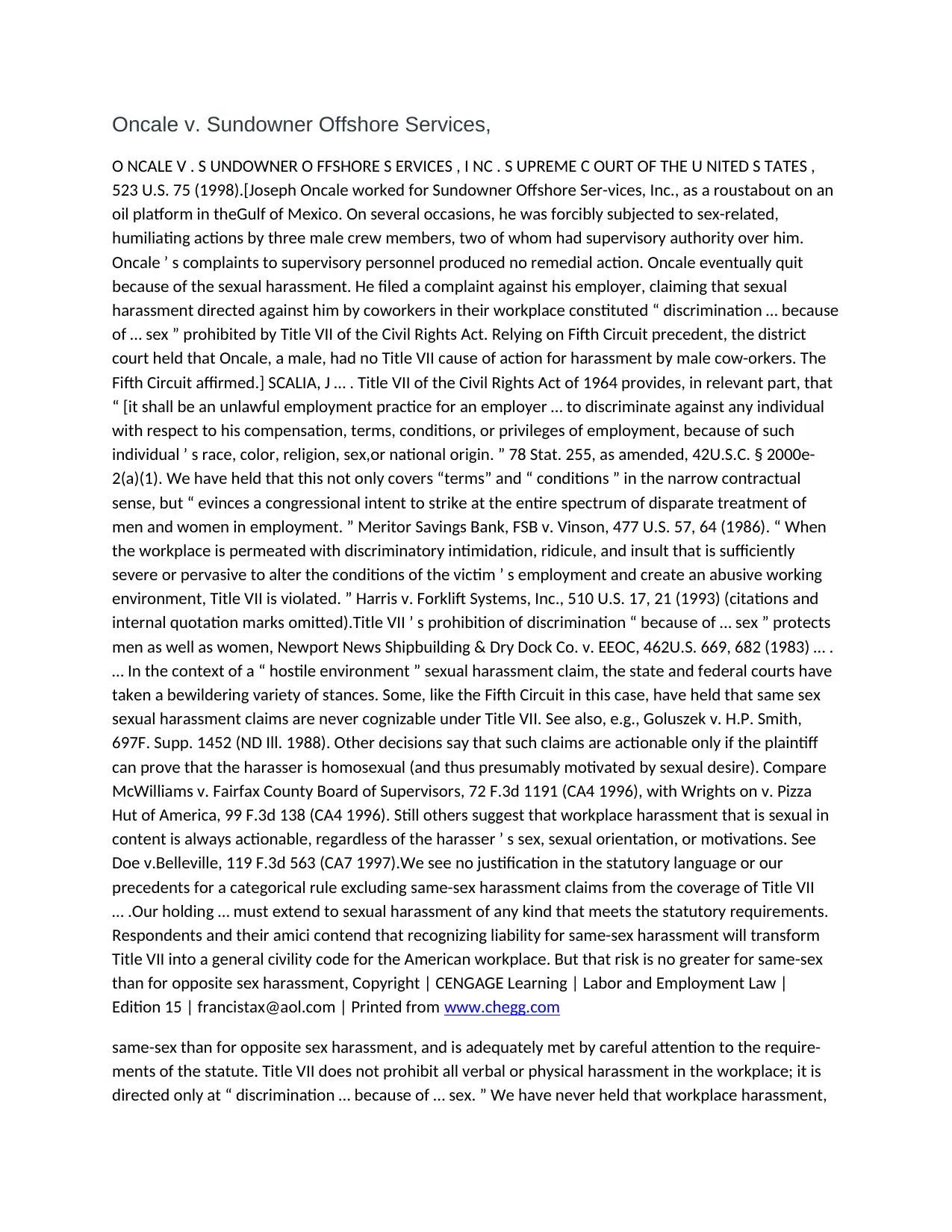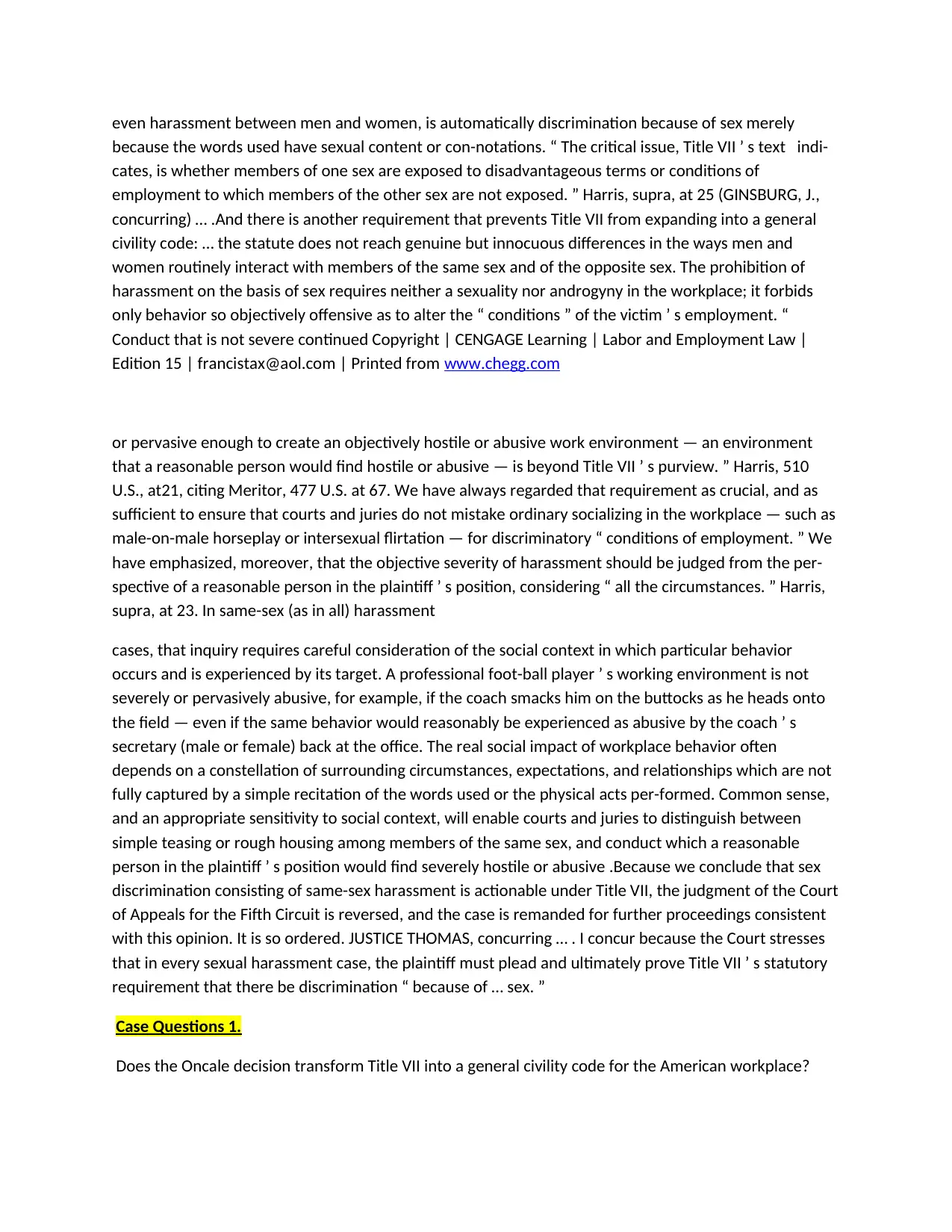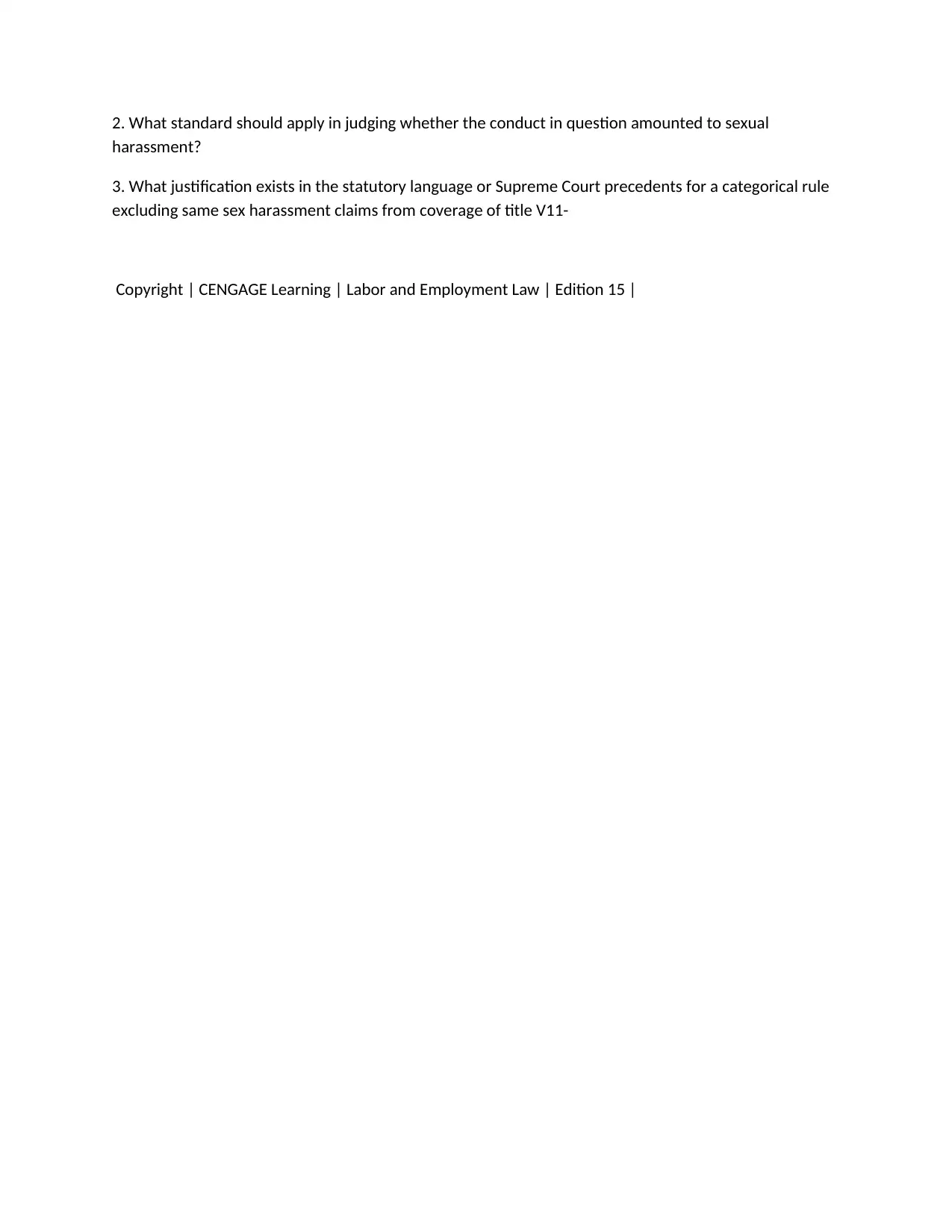Analysis of Oncale v. Sundowner Offshore Services Supreme Court Case
VerifiedAdded on 2019/09/20
|3
|1454
|184
Case Study
AI Summary
The provided document presents a detailed analysis of the Supreme Court case Oncale v. Sundowner Offshore Services, Inc. The case revolves around a male employee, Joseph Oncale, who was subjected to sex-related, humiliating actions by male coworkers on an oil platform. Oncale filed a complaint alleging sexual harassment, claiming it constituted discrimination based on sex under Title VII of the Civil Rights Act. The district court initially dismissed the case, relying on Fifth Circuit precedent that did not recognize same-sex harassment claims. The Supreme Court, however, reversed this decision, ruling that Title VII's prohibition of sex discrimination applies to same-sex harassment. The Court emphasized that the critical issue is whether members of one sex are exposed to disadvantageous terms or conditions of employment to which members of the other sex are not exposed, and that harassment must be severe or pervasive to alter the conditions of the victim’s employment. The decision clarified that same-sex harassment is actionable under Title VII, reversing the Court of Appeals' decision and remanding the case for further proceedings. The analysis includes the Court's reasoning, the statutory language, and the implications of the ruling, addressing whether the decision transforms Title VII into a general civility code, the standard to apply in judging sexual harassment, and the justification for excluding same-sex harassment claims.
1 out of 3









![[object Object]](/_next/static/media/star-bottom.7253800d.svg)